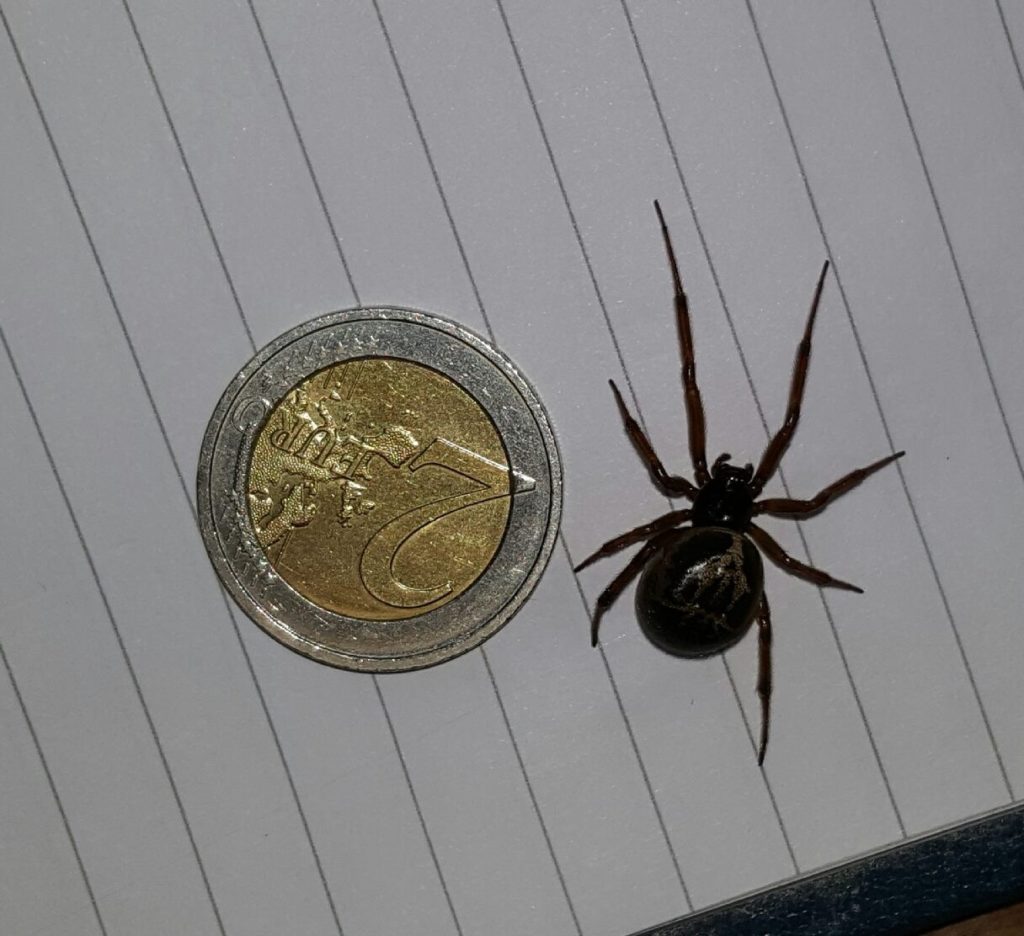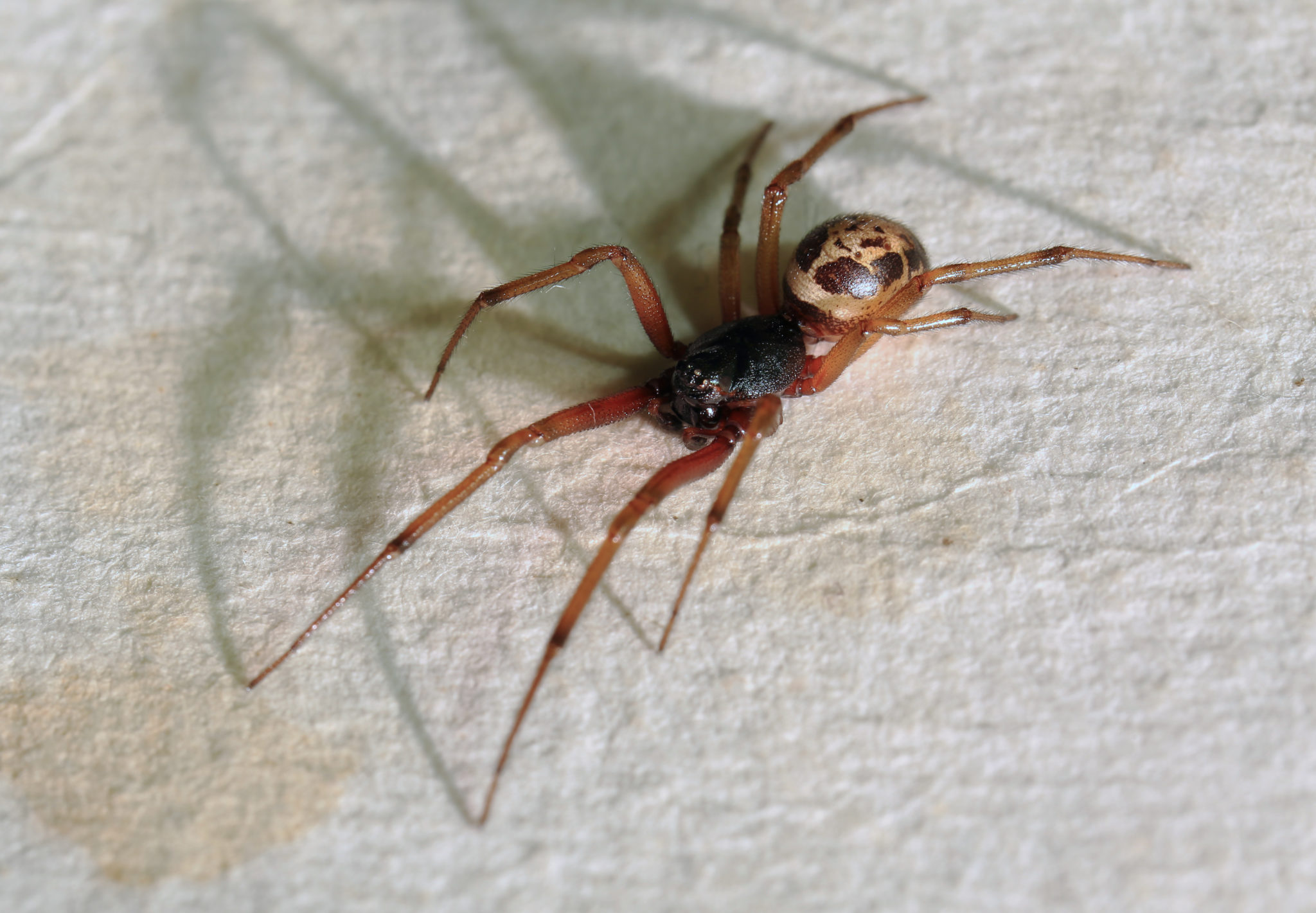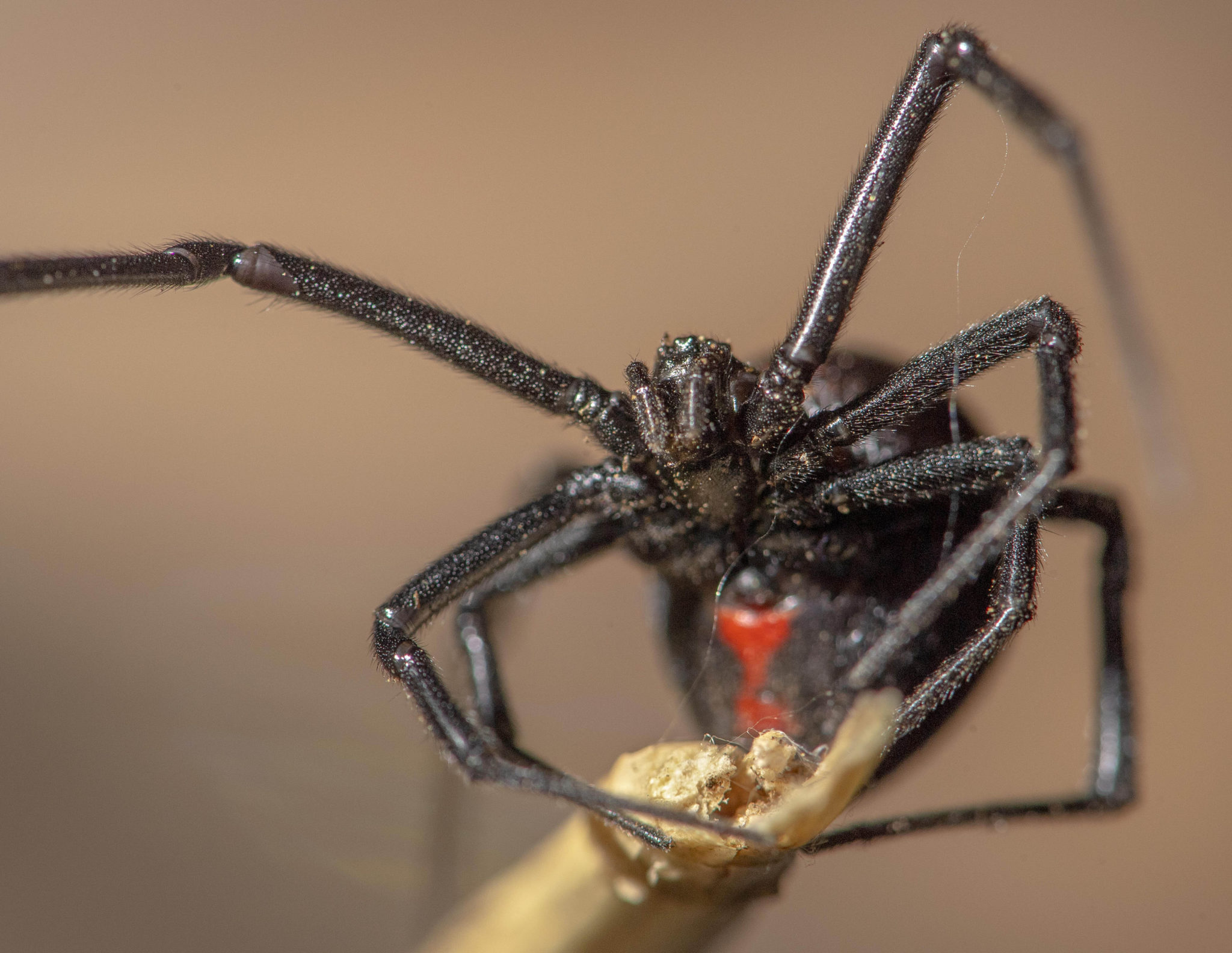It's been confirmed the noble false widow spider shares some toxins with the true false widow spider.
A bite from a noble false widow could need hospital treatment.
A new study carried out by NUI Galway has found some bite victims experience symptoms very similar to the true black widow spiders.
The spiders are originally from Madeira and the Canary Islands.
However they've spread right across Ireland since they were first detected here in the 1990s.

They're Very Common In Dublin Housing Estates
NUIG lecturer Dr Michel Dugon says the spiders have become very commonplace lately.
He says they are about the same size as a €2 coin, and have a large bulbous abdomen.
“They are becoming very prevalent in suburban and urban habitats."
“So, five years ago when we would have to catch a false widow spider, we would have to look for quite a while.
“Now if any of my students need to catch 100 or 150 noble false widows."
"So that can be done easily in two or three hours in most Dublin housing estates.”

Dr. Outlines A Number Of "Alarms"
Dr. Dugon says his team has found a number of "alarms" with the spider's bite.
"It shares two thirds of it's toxins with the true Black Widow spider."
"So that raised an alarm at the time."
"We actually also discovered that the spider's fangs can carry pathogenic bacteria."
"So that was the second alarm."
"Now we've followed some thick-skin bite cases and recorded the symptoms and experiences from the victims."
"We've actually found out that the Noble False Widow is capable of medically significant symptoms."
 A black widow spider displays its tell tale red hourglass.
A black widow spider displays its tell tale red hourglass.They Can Cause Serious Symptoms
Dr Dugon outlines some of those:
“Those patients experience excessive sweating, headache, tremors."
"They also have tachycardia – so the heart was not beating regularly."
"Or they had difficulty breathing so, we are speaking about fairly serious symptoms.
“In very rare minorities we also had very serious skin conditions."
"Those required hospitalisation and treatments over several days, weeks or even months.”
However he's stressed that the creatures are not aggressive, they are not there to bite you.
He says they like to move around at night, and hide in your clothes or your bed.
So they bite when they're disturbed and scared.












